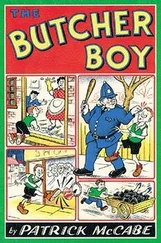“I know you wouldn’t want me to learn it on the street, Norman,” he said, and got up to follow.
ELIZABETH SAT ON THE EDGE of the bed watching the forensic team going about its work. It took an extraordinary act of patience even to watch them. They crawled around on all fours, sighting along the edge of each smooth surface for latent prints, then wrote in pads, took photographs, stretched tape measures from one point to another, and made more notes.
It was already clear that they weren’t going to find anything new in the room, she thought as she watched a sergeant crawl up to the coffee table and stare at the same spot for the third time. She said to Hart, “Let’s try something different.”
“Got anything in mind?”
“How about the other rooms on this floor? Do you have the list of who was in what room? Maybe we could start with the hotel register.”
“Mistretta’s got it and he’s checking them all out now. Not just this floor, either.”
“Well, it looks as if we’ve hit the point of diminishing returns in here.” The forensics people were packing their equipment in black metal boxes and preparing to leave.
“Whew!” said the sergeant. “This has been a long day.”
Elizabeth said, “Oh?” She was still a little resentful because they hadn’t seen the importance of the absence of prints on the window.
“Yes, ma’am,” he said, “two murders this morning besides this one, three breaking and enterings, all within a mile or two of here.”
The resentment came back without warning. Ma’am and sir were what policemen called outsiders. Whatever sympathy she had been prepared to feel for a tired cop who’d been crawling around straining his eyes for invisible marks went out of her. But she just said, “Please have copies of those reports sent to us at the Bureau office, with the precinct log.”
“No possible connection, ma’am,” said the patient sergeant. “The other two had their skulls crushed. Nothing subtle about it. Just a gang fight in an alley. The B and E’s were all just the usual—an auto parts store, a housebreaking, and a stereo shop.”
She matched his patience. “I want them anyway. It’s important to learn everything that we can about what went on in this part of town last night.” At last she succumbed: “If nothing else, it may tell us where the squad cars were when a murderer was swinging like Tarzan from balcony to balcony on the outside of this building.”
“Yes, ma’am,” said the sergeant. He picked up his fingerprint kit and stomped out the door.
Elizabeth became aware of Hart standing there watching her. She turned on him and said, “I know it wasn’t nice. But it happens to be true.”
Hart shrugged. “The local police can be very helpful if they want to.”
“So I’ll be extremely sweet to him when he gives me the logs and the investigation reports, and we’ll be fast friends forever. But the local police might not be the kind of help we’re going to need on this case. Has anybody—”
“Yes,” said Hart. “The CIA was as surprised about it as we were, and they’ve spent the day trying to match it to their standing list of possibilities, apparently without success. Mike told me they’ve probably cabled their field offices and are waiting for something that sounds plausible to come back. He also told me it doesn’t look as if anything will. McKinley Claremont was in the Senate for almost thirty years without doing anything very controversial in the area of foreign policy.”
“I suppose all we can do tonight is wait for the forensics people to work their way through the other rooms, then.”
“That and wait for our replacements to arrive,” said Hart. “As of an hour ago we’re no longer here just to establish a presence.”
“So they’ll send in the first team?” said Elizabeth. “We haven’t done so badly, considering we’ve hardly had time to begin.”
“No, we haven’t,” said Hart. “But just the same, I’m not going to do much unpacking.”
“Speaking of that, has anybody told you where we’re supposed to be staying?”
“They had our bags sent here a little while ago.” He reached into his pocket and fished out two room keys. “That way we’re easy to get hold of if they turn anything up.”
Elizabeth reached for the telephone and dialed a familiar number. An unfamiliar voice came on and said, “Justice.”
“This is Elizabeth Waring. I want to leave a message for Roger Padgett,” said Elizabeth.
“I’ll see that he gets it,” said the voice. “What’s the message?”
“I want his airline reports for last night and all day today wired to the Denver field office of the FBI. Everything within a five-hundred-mile radius of Denver. The information I requested previously I want telephoned to me at the Constellation Hotel.”
“That in Denver too?”
“Yes,” said Elizabeth, “I’ll give you a number.” She read the number on the telephone dial slowly. Then she held out her hand, and Hart placed one of the keys in it. “Room 256.”
“Got it,” said the voice. “Anything else?”
“No,” said Elizabeth. “Thanks.”
Elizabeth sat on the bed feeling exhaustion beginning to flood into her mind, taking possession of whole sections of her brain at once like water rushing into a sinking ship. Too many things were going on at once, and she was beginning to lose the strength of will that kept them separate. Everything was beginning to get muddled together and hazy. She couldn’t remember anymore whether she was collecting information that was supposed to lead in some particular direction, or just collecting information. Pervading all of it was an impression, a sense that an awful lot of people seemed to be dying. There was something unreal about it.
You knew they were dying because somebody told you so over the telephone, and by the time you got there, there wasn’t even a body. At most there was a chalk outline like the one on the floor at her feet. The discreet efficient functionaries had already cleaned everything up, so there wasn’t the palpable and substantial residue of an act of violence, just a question; the murder itself just an intellectual postulate and you were supposed to deduce its causes and corollaries starting with an infinite range of things that could have preceded it in time. All you had to work with was your ability to see the relationships, to pick the single thread of logic that might lead to the one who’d done it, and then follow it slowly forward, trying hard to take each step faster to bring yourself closer and closer to the present moment, where the murderer would be waiting for you. And all the time, the act itself was moving backward, further and further into the past. Everything you chose to look at put the act farther from your reach—trace the poison? check the airline records for suspicious travelers? check the police reports? the other rooms in the hotel? the Senator’s personal life? the CIA’s foreign agents? the world?
She was aware that Hart was saying something to her that had just battered against the tired receptors in her brain without their being fast enough to decipher it. “Huh?” she said.
“I said I think we ought to go to bed.”
“So do I,” she said, and sensed in herself a tiny warm tremor of joy. Then she realized that part of her mind had heard him differently, and had rushed upward to meet him without being held back or delayed by the restraints. She caught it in time to keep it from blurting out, “Oh, you mean each of us, not both of us.” She smiled to herself as she stood up and walked out the door. All the barriers seemed to be going at once; things were tearing through them without warning, things she hadn’t suspected were there. This one would take some thought. Not that it meant anything, but it was interesting, like a dream.
Читать дальше












